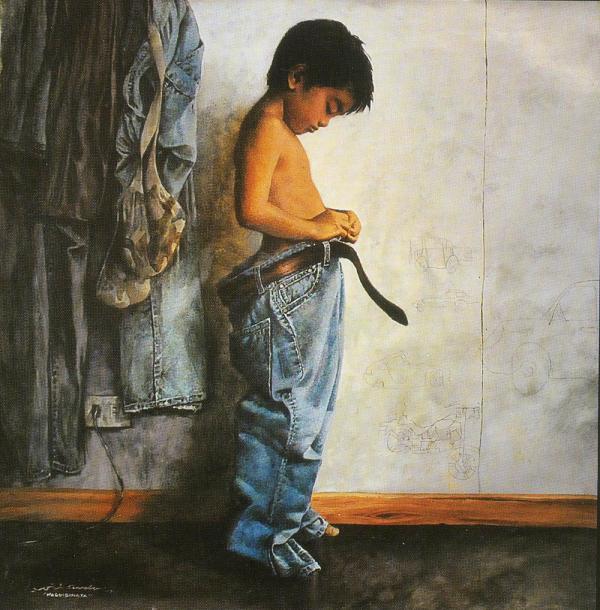I got a note last night that moved me enough that I need to get it out here. It was from a woman who was close to Zane Mead, who I wrote about a few months back.
Mood music:
[youtube http://www.youtube.com/watch?v=0NlGbLbUl_w&fs=1&hl=en_US&rel=0]
I don’t remember Tammy Digan from back in the day, but that doesn’t surprise me. I was mostly a loner back then. Except for a few close friends, I kept to myself. But I remember Zane.
Here’s what she said in the comment section of that post:
Yesterday I woke up as I do any other day, however my mood was different. I found myself missing Zane very deeply. The way I felt, was as if he has just passed within the last few weeks. I cried and cried for him. It was as if he were calling out to me. Finally I decided to pay him a visit.
When I arrived at the cemetary I parked in my usual spot and immediately began speaking to him as I walked to his grave. For whatever reason, I could not find him. Finally, it was starting to get cold as the sun was beginning to set. I was at the very back of the cemetary and had decided to make one last search and I would go in and out of each row this time. I had been here many times before, so I could not understand what the problem was, other than my blured vision from the tears.
As I began my quest, I told Zane that this would be my last pass through because it was getting too cold out and I was beginning to lose hope on finding him and perhaps he did not want to be found and only remembered on this day. As I took the next corner, there was his headstone, just as I remembered it. Zane and I had a relatively lengthy conversation and a lot of tears were shed.
Zane passed on April 8, 1988.
He was one of the most honest and kind people I have ever known. He had an amazing ability to make you smile. You could not help but to love him. Thank you for you post, it has helped me to not have to mourn his loss alone.
Even though it has been so long, I think this is one loss that will bring me to tears until the day I join him.
Tammy Digan
I know where she’s coming from. When another friend, Sean Marley, took his life eight years after Zane’s death, I visited his grave constantly.
I was very angry with him for years after his death. I swore at his gravestone a lot. I spat on the grass in front of it once. Most of the time, I talked to him, though in hindsight I was really just talking to myself, repeating all the worries in my head that really had nothing to do with Sean. My brain would spin on its stem over fears that I’d never measure up and love people the way you’re supposed to. I guess I was just venting to him like I did when he was alive.
I’m often asked how I’ve been able to find happiness after his suicide and my brother’s death. It was a long road, to be sure. But a lot has happened since then.
With Michael and Sean, I’m not sure I ever really recovered. To this day, I’m cleaning up from the long cycles of depression and addiction that followed me through the years.
Along the way, good things happened to fill in the black holes. I married the love of my life. We had two beautiful children. My career hummed along nicely for the most part.
In a strange way, Peter’s death, terrible and depressing as it was, marked the beginning of a long, hard path to recovery. It was my behavior in the months after his death that made me realize something was seriously wrong with me. It’s almost as if Peter’s spirit pushed me into dealing with things.
Peter always was a pushy motherfucker.
I’ve never been able to piece together a general timeline of the grieving process. It turns out we’re not supposed to know about such things. That would be cheating.
I do know that IT GETS BETTER.
Understanding that as I do, I’ve discovered a few things about getting through the grieving process. Here’s what I’d suggest to those going through it now:
–First, go read the past year of entries in “Penny Writes… Penny Remembers.” If you can’t learn how to live in the face of horrible loss from the writings of Penny Morang Richards, I got nothing else for you.
–Take a moment to appreciate what’s STILL around you. Your spouse. Your kids. Your friends. If the death you just suffered should teach you anything, it’s that you never know how long the other loves of your life will be around. Don’t waste the time you have with them, and, for goodness sake: 
–Don’t sit around looking at people you love and worrying yourself into an anxiety attack over the fact that God could take them from you at any moment. God holds all the cards, so it’s pointless to even think about it. Just be there for people, and let them be there for you.
–Take care of yourself. You can comfort yourself with all the drugs, alcohol, sex and food there is to have. But take it from me, giving in to addictions is nothing but slow suicide. You can’t move past grief and see the beauty of what’s left if you’re too busy trying to kill yourself. True, I learned a ton about the beauty of life from having been an addict, but that doesn’t mean I’d ever wish that experience on others. If there’s a better way to cope, do that instead.
–Embrace things that are bigger than you. Nothing has helped me get past grief more than doing service to others. It sounds like so much bullshit, but it’s not. When I’m helping out in the church food pantry or going to Overeater’s Anonymous meetings and guiding addicts who ask for my help, I’m always reminded that my own life could be much worse. Or, to put it another way, I’m reminded how my own life is so much better than I realize or deserve.
This isn’t a science.
It’s just what I’ve learned from my own walk through the valley of darkness.




